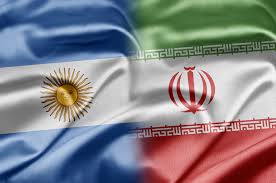RFL/RE – Argentina’s Foreign Ministry says it has asked Russia to arrest and extradite former Iranian Foreign Minister Ali Akbar Velayati, citing his alleged role in a 1994 bombing in Buenos Aires that killed 85 people.
Velayati, who is now a top aide to Iranian Supreme Leader Ayatollah Ali Khamenei, was visiting Moscow on July 12 for a meeting with President Vladimir Putin, but planned to travel to China on July 13.
Argentina’s ministry said in a statement that it had made the same extradition request to China and was awaiting Russia’s response to its request, which it said was made “within the framework of the extradition treaty between the two countries.”
Velayati was foreign minister when a bomb destroyed the headquarters of the Argentine Israelite Mutual Association on July 18, 1994, leaving 85 people dead and 300 wounded. It was the biggest terrorist attack in Argentina’s history.
Argentine prosecutors have described Velayati as one of the “ideological masterminds behind the attack,” which targeted Argentina’s Jewish population of 300,000.
Velayati is charged in Argentina with “committing the crime of homicide, classified as doubly aggravated for having been committed with racial or religious hatred and a suitable method to cause widespread danger,” according to the judge responsible for the case.
Lebanon’s Shi’ite Hizballah militant group is accused of carrying out the bombing of the Jewish center as well as an attack on the Israeli Embassy in Buenos Aires two years earlier, which killed 29 people, both allegedly at Tehran’s behest.
Iran and Velayati have denied any involvement in the attacks.
Velayati is one of five top Iranian officials who Argentine investigators say ordered the attacks, along with former President Akbar Hashemi Rafsanjani, who is now deceased, and former Islamic Revolutionary Guards Corps Commander Mohsen Rezaie.
Argentina’s failure to bring any of the accused to justice in over two decades led to a longrunning scandal involving former President Cristina Fernandez de Kirchner, who negotiated a deal with Iran in 2013 that prosecutors say enabled the accused Iranians to avoid prosecution.
Fernandez and several of her aides were indicted on treason charges in December in connection with the 2013 deal, which prosecutors allege provided Iran with legal cover to escape prosecution in exchange for a normalization of relations and a grain-for-oil deal with Buenos Aires.
The agreement created a joint commission to investigate the Jewish center bombing that critics said was really a means to absolve Iran.
Fernandez has denied the charges, arguing that she made the deal because Iran and Argentina had no extradition agreement, and Argentina does not carry out trials in absentia, leaving authorities with no other way to respond to the bombings.
With reporting by AFP and Interfax
 Shabtabnews In this dark night, I have lost my way – Arise from a corner, oh you the star of guidance.
Shabtabnews In this dark night, I have lost my way – Arise from a corner, oh you the star of guidance.



